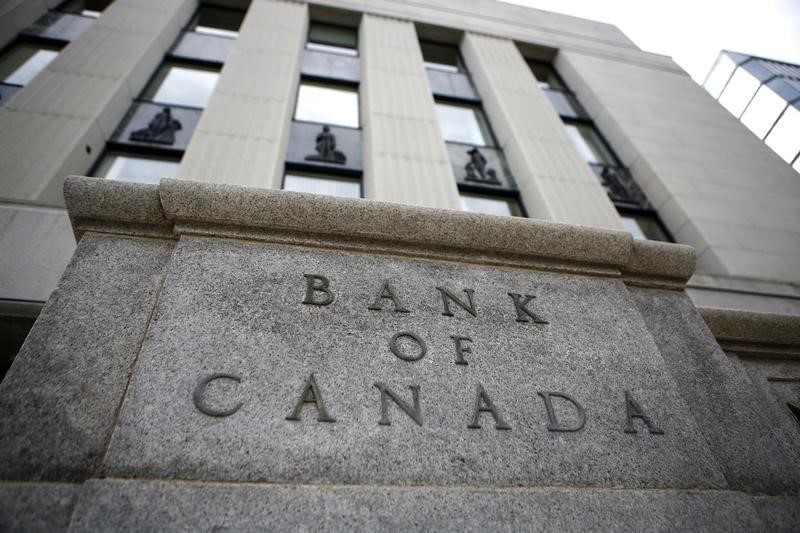By Randall Palmer and Leah Schnurr
OTTAWA (Reuters) - In a shock move, the Bank of Canada cut its benchmark interest rate on Wednesday to counter the effects of cheaper oil on economic growth and inflation and help guard against the risks of a housing market downturn.
Ending the longest period of unchanged rates in Canada since 1950, the central bank cut its overnight rate to 0.75 percent from 1 percent, where it had been since September 2010, and it dramatically slashed its inflation and growth forecasts for the coming year.
Canada is the biggest foreign supplier of crude oil to the U.S. market.
"The considerably lower profile for oil prices will be unambiguously negative for the Canadian economy in 2015 and subsequent years," the central bank said in its quarterly Monetary Policy Report.
The cut caught markets by surprise and sent the Canadian dollar to a 5-1/2-year low against the greenback
"We didn't think things had deteriorated enough for the Bank of Canada to move as quickly as this," said Adam Cole, head of G10 FX strategy for RBC in London.
The bank acknowledged that household debt levels remained high and were expected to edge up in the near term, and signaled that it had to cut rates "to provide insurance" against the risks of financial instability and lower inflation.
Lower interest rates could exacerbate the ill effects of a hot housing market in Toronto and elsewhere, but the bank's move suggested it was more concerned that the oil price collapse might trigger a housing crash.
"A soft landing in the housing sector continues to be the most likely scenario," the bank said, adding, however, that a possible "disorderly unwinding" of household imbalances could have a big negative impact on the economy and inflation.
"Clearly the bank is more worried about the economy and missing its inflation target than it is about household financial imbalances and the overvaluation in some housing markets," said Sal Guatieri, senior economist at BMO Capital Markets, in Toronto.
Analysts had expected the bank to cut its growth and inflation forecasts but had predicted the bank's next move would be a rate hike in the fourth quarter of this year or early next year.
The economy will grow by 1.5 percent in the first half of 2015, the bank said, less than the 2.4 percent it forecast in October, and thus widening the country's output gap.
The bank cut its 2015 economic growth forecast to 2.1 percent from 2.4 percent, compared with the International Monetary Fund's prediction earlier this week of 2.3 percent.
The bank also pushed back the timetable for the economy to reach full capacity to the end of 2016 from the second half of 2016.
The most dramatic effect of low oil will be on overall inflation, which the bank said will be below its target range of 1 to 3 percent for most of 2015 and as low as 0.3 percent in the second quarter.

Core inflation, however, will remain steady at close to 2 percent this year as the downward pressure from excess supply and retail competition gradually dissipates, and the upward pressure from the depreciation of the Canadian dollar fades.